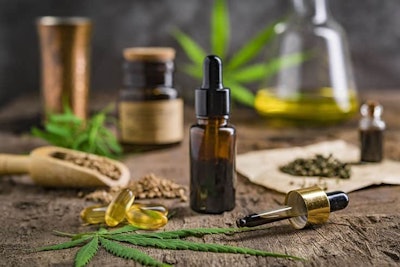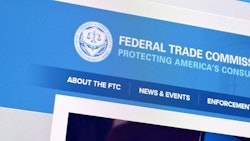
Producers of cannabidiol (CBD) are now one step closer to a clear pathway for marketing their hemp-derived cannabinoid in dietary supplements through various sales channels.
After seven months of clinical research, a team of principal investigators from Validcare presented preliminary findings March 15 to the U.S. Food and Drug Administration’s (FDA’s) Cannabis Product Council. The findings showed no evidence of liver disease and no increase in the prevalence of elevated liver function tests (which would indicate inflammation or damage to cells in the liver, according to Mayo Clinic) in 839 participants when compared to a population with a similar incidence of medical conditions, according to Validcare’s March 23 press release. Validcare is a leading provider of digital decentralized patient-centric clinical trials for the life science and health care supplement industry.
The CBD liver safety study was commissioned and designed in response to the FDA’s request for science-based data so the administration could explore viable and appropriate regulatory pathways for hemp-derived CBD products outside the drug context. Only a pharmaceutical version of CBD, Epidiolex, is currently approved and regulated by the FDA.
“Our primary endpoint in this study is to observe potential liver effects in adults ingesting oral forms of hemp-derived CBD for a minimum of 60 days,” co-investigator Jeff Lombardo, PharmD., a board-certified oncology pharmacist (BCOP), said in the release.
“What we observed to date is no clinical evidence of liver disease in any participants,” he said. “We observed slight, clinically insignificant elevations of liver function tests in less than 10 percent of consumers irrespective of age, product composition and form, and the amount consumed.”
Three of the 839 participants had three times normal levels of the liver enzyme alanine aminotransferase (ALT). These three consumers were taking prescription medications that are known to elevate liver enzymes, which “we are investigating whether prescribed medications or other factors contribute to these outliers,” Lombardo said.
Overall, 70% of the study’s participants reported having a medical condition and taking medications for those conditions without an increase in reporting of adverse events, according Validcare.
“We are encouraged by these findings and hopeful this study provides FDA with sufficient science-based data to determine and take action on a safe regulatory path forward,” said Dr. Keith Aqua, M.D., co-principal investigator of the study. “We will continue to analyze these real-world data and are adding a second cohort to this study to increase statistical certainty for liver safety and secondary measures across diverse populations and consumers with various medical conditions.”
Principal investigators reviewed the preliminary liver safety study results in the form of an abstract with the FDA. The parties also discussed establishing a direct communication feed to the FDA so it can receive raw, blinded, aggregate data for its analysis.
The following 12 product companies led the industry in the initial study cohort: Asterra Labs, Care by Design, CBDistillery, CBD American Shaman, Charlotte’s Web, Columbia Care, Global Widget, HempFusion, Infinite CBD, Kannaway, Medterra CBD and SunMed CBD. Each brand provided funding, product, certificates of authenticity and assisted with recruitment of U.S.-based adult consumers, according to Validcare.
“Congressional leadership asked Validcare almost 18 months ago to engage industry help [to] collect safety data for FDA. We understand the significance, importance and immediate need for CBD safety research for the FDA, industry and the U.S. consumer,” Validcare CEO Patrick McCarthy said. “We are excited for our principal investigators to continue, expand and report out on this foundational work in the next few months. Once completed, safety results of this study will be shared with participating brands and FDA. The investigators also plan to publish [the results] in a peer-reviewed journal.”
Balanced Health Botanicals, a family of hemp-derived CBD brands, including its flagship brand CBDistillery, released a statement March 23 that said the study is the first step in increasing science-backed research and opening a direct line of communication with the FDA.
“There continues to be an increased need for science-backed data to aid in supporting very welcomed FDA regulation of this compound that has been used in medicine for thousands of years, but until recently, not allowed to be sold in the United States,” said Chase Terwilliger, CEO of Balanced Health Botanicals, in the news release. “We’re excited and honored to be a part of this ongoing research, specifically with Validcare’s recent findings. This is a major step for the hemp industry as a whole, and CBDistillery will continue to provide products, insight and resources where needed to ensure additional research can be done.”
Charlotte’s Web also released a statement March 23 that says the preliminary findings from the clinical study reaffirm the safety of its hemp-derived CBD extract, and that the methodology of a decentralized, observational approach with adult consumers of full and broad-spectrum hemp extracts and CBD isolates answered the FDA’s letter to Congress last March.
“We support using clinical science to inform our nation’s health regulators, lawmakers, state and federal regulators but most importantly, we believe in using clinical science to build long-term consumer trust,” said Deanie Elsner, Charlotte’s Web CEO. “Relevant science and regulatory oversight should work hand-in-hand for the benefit of all Americans.”

























